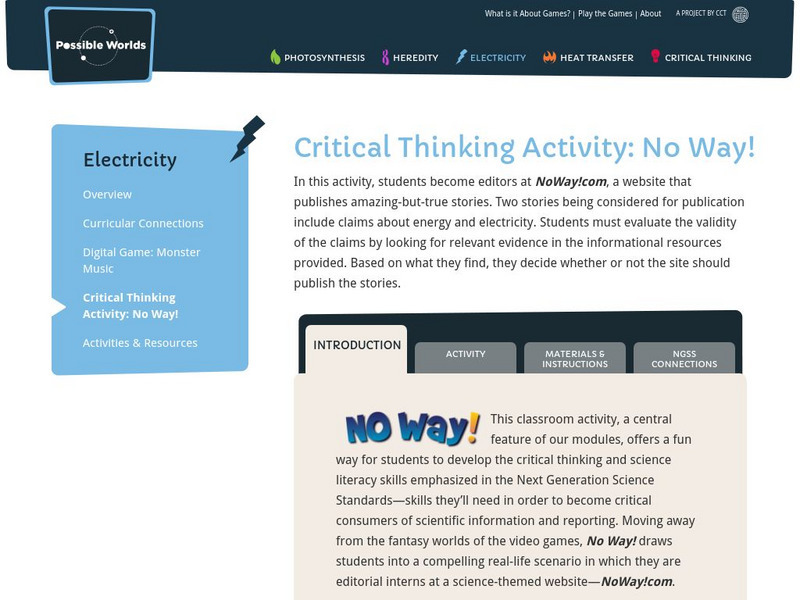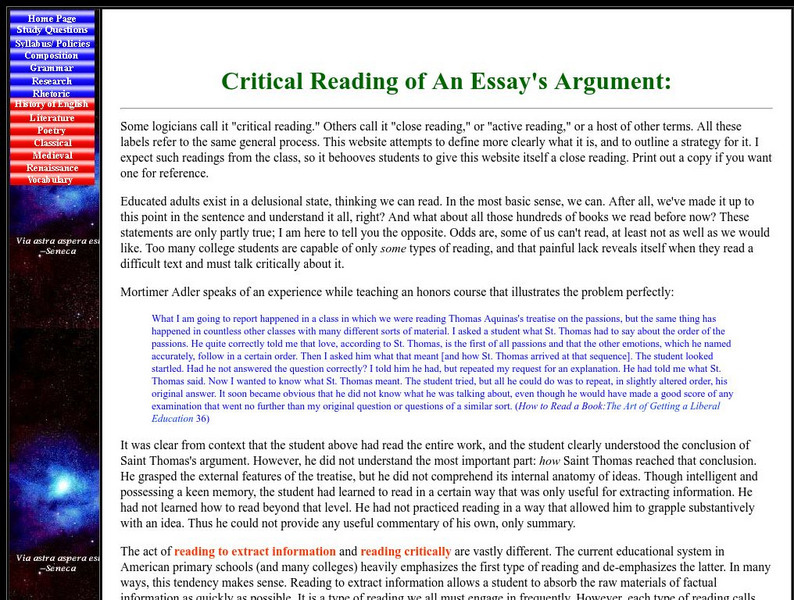Education Development Center
Center for Children and Technology: No Way: Electricity
Moving away from the fantasy worlds of video games, No Way draws learners into a compelling real-life scenario in which they are editorial interns at a science-themed website. This classroom activity on electricity offers a fun way for...
Other
Carson Newman College: Critical Reading of an Essay's Argument
Extensive examination of what it means to critically read an argument. This process is sometimes called "critical reading," or "close reading," or "active reading." First the differences between reading to extract information and reading...
ReadWriteThink
Read Write Think: Analyzing Famous Speeches as Arguments
This multi-session activity features the opportunity to analyze a variety of famous speeches. Learners will look carefully at tone, rhetoric, propaganda techniques, and historical context as they write an analysis paper....
Stanford University
Stanford U.: Evaluating Information: The Cornerstone of Civic Online Reasoning
This report from the Stanford History Education Group describes the conclusions of their work in field testing a set of assessments of civic online reasoning by young people from the middle school to the college level. Middle school...
Polk Brothers Foundation Center for Urban Education at DePaul University
De Paul University: Center for Urban Education: Use Evidence to Show How a Writer Supports
This Center for Urban Education resource provides a downloadable graphic organizer for students to use when analyzing the evidence that authors use to support a claim. RI.9-10.5 ideas/claims developed. CCSS.ELA-Literacy.CCRA.R.8
iCivics
I Civics: Games: Argument Wars
Games in which players act as lawyers arguing head to head before a judge about real Supreme Court cases.






